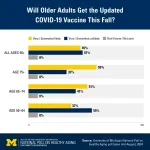(Press-News.org) A new peer-reviewed study published in PeerJ Life and Environment has uncovered alarming levels of seafood mislabeling and the use of ambiguous market names in Calgary's seafood market, often concealing species of conservation concern. This research marks the first Canadian study to investigate both invertebrate and finfish mislabeling and the implications of unclear market names.
The study, titled "Mislabeled and Ambiguous Market Names in Invertebrate and Finfish Seafood Conceal Species of Conservation Concern in Calgary, Alberta, Canada", analyzed 109 invertebrate and 347 finfish products sold between 2014 and 2020. Researchers found that approximately one in five seafood products was mislabeled, with mislabeling rates at 20.2% for invertebrates and 21.3% for finfish. Furthermore, species substitutions included endangered species such as European eel (Anguilla anguilla) being sold as freshwater eel (Anguilla rostrata), and cuttlefish products identified as the endangered threadfin porgy (Evynnis cardinalis).
"We would never buy something called a mammal sandwich or a bird salad, yet we seem content to buy products with the ambiguous names of rockfish, tuna or cod. Our work has shown that such ambiguity in product names does not prevent mislabeling (you would think it would, if one product name could apply to ten different species), and, even worse, it hides species of conservation concern. When we buy seafood products that are not clearly labeled to species, we run the risk of eating creatures that we should be protecting." Said Assoc. Prof. Matthew R.J. Morris, Ambrose University.
In addition to product substitution, the study highlights the role of legally ambiguous market names—common labels that can apply to multiple species, further complicating efforts to ensure sustainable fisheries. These ambiguous names were strongly linked to the sale of species at risk, emphasizing the need for clear, precise labeling to better protect vulnerable marine populations.
Key Findings:
Seafood mislabeling rates were high, with 20.2% of invertebrates and 21.3% of finfish being mislabeled.
Product substitutions sometimes involved endangered species, including European eel and threadfin porgy.
Ambiguous market names were found to be a significant predictor of the sale of species of conservation concern.
More precise market names could better support sustainable fisheries and protect endangered species.
The authors argue that while preventing mislabeling is crucial, eliminating the use of ambiguous market names is an even more pressing issue for protecting vulnerable species. With advancements in DNA-based identification, the study suggests that clearer labeling standards are within reach and necessary to empower consumers to make more informed and sustainable choices.
As conservation becomes an increasing priority, this study calls for regulatory changes and encourages consumers to be vigilant about the seafood products they purchase, urging them to "vote with their wallets" and demand transparency in market names.
END
Study reveals high rates of seafood mislabeling and ambiguous market names in Calgary, Alberta, highlighting species of conservation concern
2024-09-23
ELSE PRESS RELEASES FROM THIS DATE:
COVID-19 hits older adults hardest; which ones want the updated vaccine?
2024-09-23
The newly updated COVID-19 vaccine just arrived in pharmacies and clinics nationwide, and a new poll suggests nearly half of people age 50 and older plan to get it. But some older adults with high risk of severe illness appear unlikely to seek the vaccine, and interest varies widely by age group, education level, race and ethnicity, and other factors, the poll shows.
In all, 45% of people age 50 and older say they’re likely to get the updated vaccine, according to the new findings from the University of Michigan’s National Poll on Healthy Aging. The data come from polling done in August 2024, just before the new vaccine was released but ...
Mental health issues are a common phenomenon in elite sport
2024-09-23
Nearly three-quarters of Dutch elite athletes and forty percent of their coaches report sport-related distress. This is one of the findings from a study conducted by Amsterdam UMC together with NOC*NSF, the organisation which represents the Dutch Olympic Committee and the Dutch Sport Federation, published today in BMJ Open Sport & Exercise Medicine.
The most common mental health problem among athletes and coaches is report sport-related distress (73% and 41%, respectively). Unfavorable alcohol consumption that can negatively affect sports performance is also common (52% and 53%). In athletes, ...
New insights into intellectual disability genetics emerge at Mount Sinai
2024-09-23
New York City (Sep 24, 2024) – Researchers at the Icahn School of Medicine at Mount Sinai have published a pivotal study in Nature Genetics (DOI: 10.1038/s41588-024-01917-1) that sheds light on a novel genetic variant associated with intellectual capacities and educational outcomes. This discovery offers new insights into intellectual disability diagnostics and potential therapeutic avenues.
The study reveals the significant impact of tandem repeats—sequences of DNA where a pattern of nucleotides is repeated multiple times in a head-to-tail manner on a chromosome—on intellectual functioning.
"The ...
Older people are more swayed by the impulsive actions of others when making financial decisions – new study reveals
2024-09-23
Older people are more likely to be influenced by the impulsive financial preferences of others than their younger counterparts, according to a new study.
Research lead by psychologists at the University of Birmingham and the University of Oxford published today in Communications Psychology, reveals that people aged 60 and over are more prone to being influenced by other people when it comes to making impulsive financial decisions compared to young adults aged between 18 -36.
The study set out to explore delayed gratification and how our willingness to wait and social influence develop and differ across our lifespan. To test how age ...
Leading scientists redefine ‘sustainability’ to save the ocean and feed a hungry and warming planet
2024-09-23
Top ocean experts have published a report that redefines the concept of “sustainable fishing” and proposes 11 “golden rules” that radically challenge the flawed approach that currently prevails in fisheries management.
Published a week before Brussels’ Ocean Week, and a few months before the UN Ocean Conference in Nice, the rules have been devised to put an end to the ongoing destruction of the oceans caused by fishing, and ensure the renewal of abundant fish populations to feed future generations.
They come at a time when scientists have drastically downgraded their assessment of the ocean’s health status.
The rules ...
Experts discover the deadly genetics of cholera, which could be key to its prevention
2024-09-23
Experts have used a cutting-edge computational approach to discover the genetic factors that make the bacteria behind cholera so dangerous - which could be key to preventing this deadly disease.
The breakthrough study, published in Nature Communications, is led by Professor Tania Dottorini from the University of Nottingham, in collaboration with Bangladesh’s Institute of Epidemiology, Disease Control and Research (IEDCR), International Centre for Diarrhoeal Disease Research, Bangladesh, and North South University.
The innovative research combines machine learning, genomics, genome-scale metabolic modelling (GSMM), and 3D ...
How remarkable diversity in heat tolerance can help protect coral reefs
2024-09-23
New research out of Southern Cross University has found previously undocumented variation in coral heat tolerance on Australia's Great Barrier Reef, giving hope that corals’ own genetic resources may hold the key for us to help in its recovery and adaptation.
In a study to be published (at 10am BST, Mon Sept 23, 2024) in Communications Earth and Environment, researchers measured the bleaching thresholds of more than 500 colonies of the table coral, Acropora hyacinthus, using a portable experimental system that was used at sea at 17 reefs spanning the Great Barrier Reef.
The study was led by Southern Cross University PhD candidate Melissa ...
Most new recessive developmental disorder diagnoses lie within known genes
2024-09-23
Scientists have conducted the largest and most diverse study to date on how recessive genetic changes contribute to developmental disorders1. They found that most undiagnosed cases that are due to recessive causes are linked to genes we already know about, and suggest a shift in research focus could improve diagnosis rates.
Researchers from the Wellcome Sanger Institute and their collaborators at GeneDx analysed genetic data from nearly 30,000 families affected by developmental disorders – six times more families with greater diversity in ancestral ...
Compact “gene scissor” enables effective genome editing
2024-09-23
CRISPR-Cas systems, which consist of protein and RNA components, originally developed as a natural defense mechanism of bacteria to fend off intruding viruses. Over the last decade, re-engineering these so-called “gene scissors” has revolutionized genetic engineering in science and medicine. The tools can be programmed to find a specific location in our DNA and edit the genetic information in a precise manner. For example, a disease-causing mutation in the DNA can be reverted to its ...
New report: Nvidia is going for quality not quantity with AI chip patents
2024-09-23
A new analysis of semiconductor patents released today by IFI CLAIMS Patent Services helps to explain why the recently embattled Nvidia is a world leader in AI microchips, despite only appearing 9th on the list of top companies for the number of AI chip patents.
Key points:
The analysis by IFI CLAIMS Patent Services – a Digital Science company and the patent industry’s most trusted data provider – shows that the Top 5 companies in the US for the number of AI chip patents are: IBM, Samsung, Intel, Google and Microsoft, with IBM way out in front.
However, while Nvidia is currently 9th among the Top 10 in the US for the number of AI chip patents, Nvidia ...




